Meet Master & Dynamic MW50 Wireless on-ear headphones

I am a big fan of on-ear headphones, which attitude bucks the noise-cancellation trend. The design is a nice compromise between over-ear and open-back styles—the latter of which can present the best soundstage. Cans that rest on the ears, rather than cover them, tend to be lighter and confer airier, more natural sound. However, they also leak noise both ways, which makes them less appealing for commuter trains or air travel.
Since I reviewed MW60 Wireless last week, I simply must point out that Master & Dynamic launched MW50 on-ear Bluetooth headphones today. Yes, I plan to review them in the near future. The company says the Fifty is one-third lighter than the Sixty, while adhering to the same, retro-design ethic and modern materials—aluminum, lambskin, leather, and stainless steel.
Is Apple Halloween 2016 Trick or Treat?

That's the question to ask if you're considering ordering the new MacBook Pro unveiled last week or wondering whether or not to cancel an already placed purchase before it ships. For fervent fanboys who drink Apple Kool-Aid like water, "treat" can be the only answer. But for the thinking public, the response depends on several factors, such as budget and whether or not buyers believe that the fruit-logo company advocates a rational design ethic.
Let's start with the latter. Apple is finger-obsessed and has been since before the first Mac shipped, as I explained in March 2010 post: "What 1984 Macintosh marketing reveals about iPad". The company lags behind Google getting to the next user interface, which is more contextual and immediately responsive: Voice, meaning touchless interaction, rather than touch, supported by artificial intelligence. By contrast, Apple isn't ready to abandon the finger-first motif, as Touch Bar makes so obviously apparent.
If you're a recent MacBook Pro buyer, Apple just did you a HUGE favor
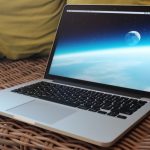
People wanting a shiny new MacBook Pro are in for sticker shock. The entry-level for the cheapest, newest 13-incher is $200 or $500 more than its predecessor, depending on whether or not opting for the newfangled TouchBar and TouchID. That's $1,499 or $1,799. Yikes. MBP 15 is a $400 price hike, $2,399, for current tech.
But if you already own MacBook Pro, particularly the 13-incher released in March 2015 or the larger model two months later, Apple increased the laptop's value by not accelerating its depreciation. No kidding. That's because the new entry-level SKUs are the same as before.
Could Apple make Mac laptop buying any more confusing?

The Mac laptop line, following today's new announcements, looks lots less like Apple and more like Compaq—where Tim Cook worked much earlier in his career, incidentally, long before the original IBM PC clone-maker's demise. Confusing. Complicated. These are apt descriptions that might just send the ghost of Steve Jobs skyward on either—take your pick—Halloween or Day of the Dead.
Among Apple cofounder's first tasks when returning to the chief executive's chair in 1997: Simplifying product families. Jobs cut the deadweight, surprising many people by killing off Newton, for example. Complex product lines define Apple under successor Cook, by contrast.
Apple fiscal Q4 2016 by the numbers: $46.9B, $1.67 EPS
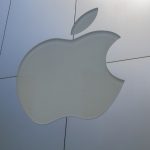
Two days before Apple's next media event, where long-overdue new laptops presumably arrive, the Cupertino, Calif.-based tech giant released fiscal fourth quarter and full-year 2016 results. You could feel the anticipation after the Bell closed on Wall Street today—and, honestly, it had been palpable for weeks. Shares closed $118.25, up .51 percent.
The drama is a TV thriller: Release of iPhone 7 and 7 Plus set against a backdrop of saturated global smartphone sales; launch of Apple Watch Series 2 into an already declining market for smart timepieces; analyst data showing calendar third quarter to again be bad for PC shipments—with even Macs losing momentum. So everyone wants to know: What was the quarter's financial crop?
Say, what's going on at Intel Capital Global Summit 2016?

San Diego, Calif. As a general rule I never connect to public WiFi networks, which is fine except when attending an event at a hotel ballroom where T-Mobile cellular is like an apparition dancing around a Halloween grave. So as Wendell Brooks, CEO of Intel Capital, begins his speech, I sit typing narrative offline rather than tweeting live. There’s irony, I suppose, reporting old style, about investments in new innovations.
Welcome to the trials and travails of the Intel Capital Global Summit, which kicks off today and goes through October 26. Looking at the lineup, I expect to hear about newfangled tech that would make news reporting so much easier if available—although 4G cellular data would be good enough for today.
Master & Dynamic MW60 wireless headphones [Review]
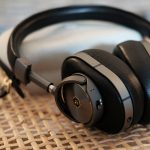
For Christmas 2015, I bought myself a new pair of Bluetooth headphones. After trying several sets, I settled on Master & Dynamic MW60, which were a fantastic choice then and are still my top recommendation nearly a year later. The wireless cans replaced my beloved Grado RS1e -- no small feat.
Read no further and buy the M&D cans, if wireless listening is priority -- and should be if using iPhone 7 or 7 Plus, which lack 3.5 mm jack. Authentic audio, spacious soundstage, and full fidelity (without over-punchy bass) make the MW60 the gold standard for Bluetooth cans.
How do you FEEL about Samsung Galaxy Note 7's demise?

I sold my sister's T-Mobile HTC M9 earlier today. Nan lives in Vermont, where Verizon delivers consistently better coverage and where the market for a used smartphone is much smaller than here in San Diego. The buyer had previously owned the Samsung Galaxy Note 7, which she really enjoyed. While waiting until late November or early December for her matte black iPhone 7 Plus order, the woman has a Samsung Galaxy J7 loaner and hates it. She is familiar with the M9 because her mom owns one.
This lady is the fifth person I've met in just a few days who had bought Note 7. They're everywhere—and a sorry lot of disappointment, too. Every one switched to an iPhone. What? Has no one read reviews claiming Google's Pixel handsets are the Android iPhones everyone waited for?
A new weapon against terrorism

San Diego, Calif. The cop convention is in town this weekend, and I have never seen so many men in blue-grey suits or uniformed officers strutting sidearms. Quite possibly the safest-feeling place in San Diego through October 18th is the Convention Center and the areas around it—that is unless you're a lawbreaker or someone as afraid of men and women in uniform as clowns. What the hell is this clown craze anyway? Yeah, that's off-topic.
The International Association of Chiefs of Police holds its 123rd annual conference, which I blasted through (poor choice of words, I know) yesterday for a specific, and interesting product launch: Patriot One's NForce CMR1000; self-described as a "covert primary screening device for the detection of on-body concealed weapons at access points including hallways and doorways of weapons-restricted buildings and facilities". I met with CEO Martin Cronin and Chief Science Advisor Natalia Nikolova.
When is stupidity fraud?

Next month I return from my first—and hopefully last—summer sabbatical. I resume writing with a question for you: "When is stupidity fraud?" I ask because someone is using my gmail address to sign up for a humungous number of newsletters and websites. At first, I presumed someone trolled me. But that no longer appears to be the case. This guy, presumably living in North Carolina, either uses my address randomly to hide his identity, or he mistypes one that is similar. Given many of the services are for an unidentified widower looking for love, I assume the latter.
Behind my question are real concerns about identity and privacy that do not just apply to me. The email address gives me the ability to change the passwords and even cancel accounts—both of which I have done, treating his misuse of my email address as identity theft and violations of my privacy; after years of careful cultivation that reduced spam, crap is on the rise as this misuse spreads my gmail identity across dating and discount sites and sex webcams. Who knows on what mailing lists it will appear next.
Google should Brexit
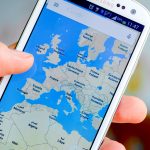
Yesterday, Europe's Competition Commission expanded its legal assault against Alphabet and major subsidiary Google. Four monopolies are under fire: AdSense, Android, search, and shopping services. Trustbusters allege that Google uses anticompetitive tactics to protect its market dominance, which share ranges from 80 percent to 90 percent in each category. Behind the charges is a hoity-toity attitude typical of overly-protectionist EU regulators. What if the information giant gave them what they want?
Imagine this: Google shuts down operations across the entire Euro zone—in a Brexit-like departure, but suddenly with no preparations. Switch it off. Search and other services could remain available in Britain and to all other non-EU countries. The company surely has the means, starting with IP blocking and expanding to other measures. The risk: Confirming just how dominant is Google, because of the incredible negative consequences. But the chaos also would lead to an outcry to restore services, while illuminating how important Big G is to citizens and how greatly businesses benefit, or profit, from the monopolies.
European trustbusters torpedo Google

Alphabet Admirals Sergey Brin and Larry Page had better tell Captain Sundar Pichai to close the watertight doors—lest the search and advertising ship sink in the North Sea, where depths reach 700 meters (2,300). Brrrr. Are the lawyers handing out life preservers? Will paralegals man the water pumps?
Today's expansion of the European Union Competition Commission's investigation into Google business practices makes a really bad situation much, much, much worse. Problems are these: Adding advertising to anticompetitive charges; expanding investigation to four monopolies (AdSense, Android, search, shopping services); citing exclusive contracts as violation of the law; and narrowing the applicable market for search shopping competition, thus blowing apart one of Google's major counter legal arguments. Kaboom!
How much storage does your laptop need?

The question nags as I prepare to review TarDisk Pear flash memory expansion. The doohickey is available in 128 or 256 gig capacities for either MacBook Air or Pro. It fits neatly and snuggly into the SDXC card slot, which is required; color and finish match, too. Windows users must look elsewhere, though, and many may be glad to. The tech lists for $149 and $399, respectively. But, hey, the Apple fan club is accustomed to paying more for everything.
I will test TarDisk Pear on my 13-inch MacBook Pro with Retina Display, 3.1GHz Intel Core i7 processor, 16GB RAM, and 256GB SSD. I recently, and unexpectedly, filled up the hard disk with photos and podcast raw recordings. (Hehe, using Chromebooks for so long spoiled me and my awareness of such things.) Doubling storage, particularly with San Diego Comic-Con coming in 14 days, could prove useful for editing audio, pics, and video on the laptop. But is it necessary or contrivance?
Apple should buy Tidal
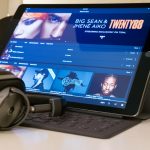
As a Tidal subscriber, I welcome Apple acquisition—assuming lossless tracks are made available through the fruit-logo company's music services. Not that anyone should seriously believe the rumors. But one can hope.
Merger talks are typically silent affairs. When they're serious, you don't hear about them until there is a deal. Reasons are many, with regulatory being among them when public companies are involved. Acquisition rumors often mean something else: Principal party leaks information about preliminary or ongoing discussions to gauge customer and shareholder reaction; one side or the other is dissatisfied with progress/terms and seeks to apply pressure.
Seven things I learned from Apple's WWDC 2016 keynote

Apple's annual developer conference is underway in San Francisco. Yesterday's opening keynote was the best since before cofounder Steve Jobs' death nearly 5 years ago. While pundits poo-poo what's missing (shiny gadgets), new and improved software and services matter more—and they showcase priorities properly placed.
CEO Tim Cook kicked off the event, by asking attendees to stand and offer a moment of silence for the mass murder victims the previous day in Orlando, Fla. Forty-nine people are confirmed dead and as many hospitalized from the nightclub shooting. He then went on to lay out a clear agenda for the keynote and the conference—four platforms: iOS 10, macOS "Sierra" (formerly OS X), tvOS 10, and watchOS 3.
Joe's Bio
Joe Wilcox is BetaNews executive editor. His motto: Change the rules. Joe is a former CNET News staff writer, JupiterResearch senior analyst, and Ziff Davis Enterprise Microsoft Watch editor.
Ethics StatementBetaNews, your source for breaking tech news, reviews, and in-depth reporting since 1998.
© 1998-2025 BetaNews, Inc. All Rights Reserved. About Us - Privacy Policy - Cookie Policy - Sitemap.
